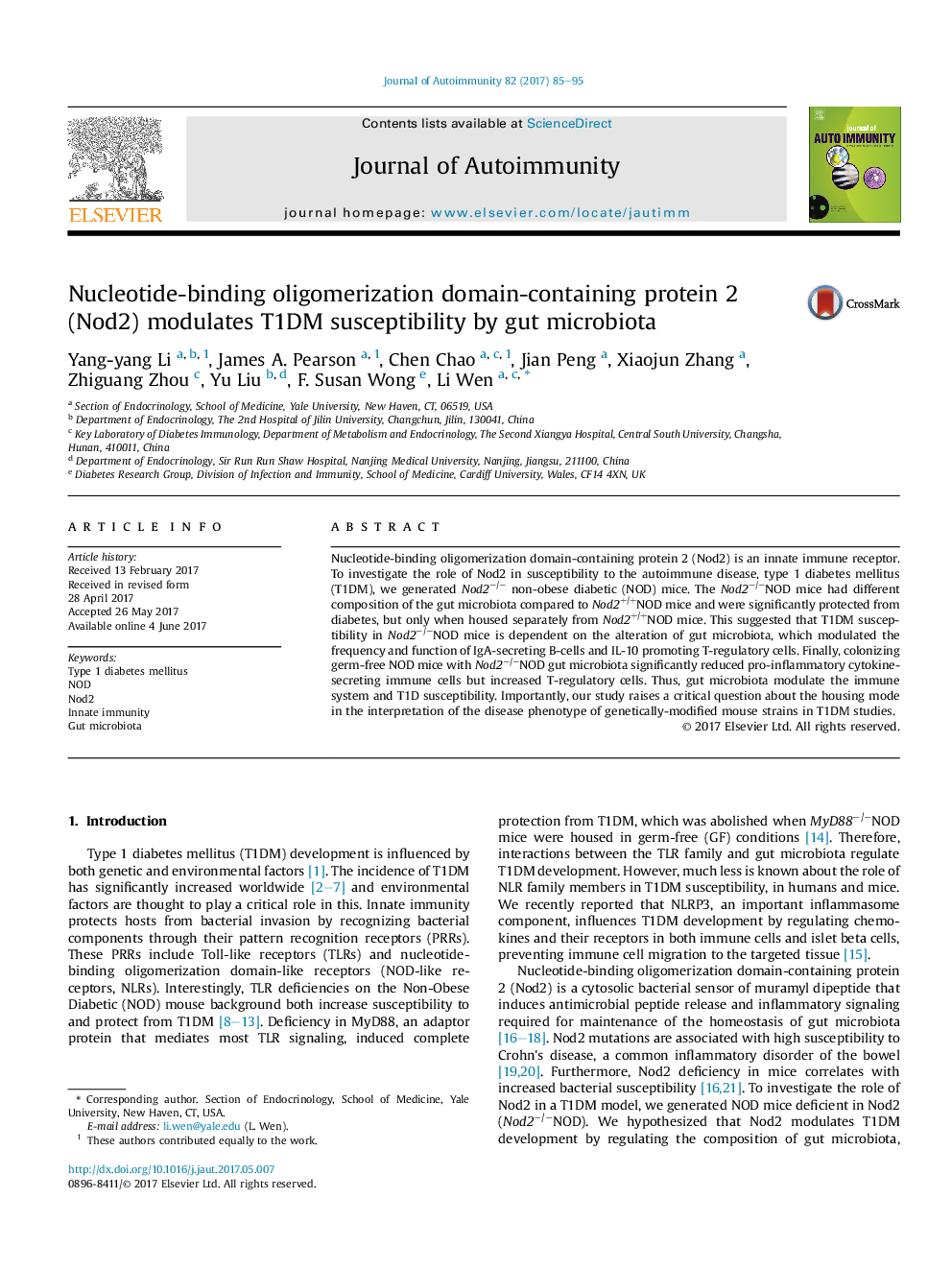| Article ID | Journal | Published Year | Pages | File Type |
|---|---|---|---|---|
| 5667874 | Journal of Autoimmunity | 2017 | 11 Pages |
â¢The innate immune molecule Nod2 regulates susceptibility to autoimmune diabetes in NOD mice.â¢Nod2 expression and housing partners alter the composition of gut microbiota that affect diabetes development.â¢Gene-determined and housing-dependent altered microbiota modify T and B cell responses.â¢Immunological phenotypes are dependent on the composition of gut microbiota.
Nucleotide-binding oligomerization domain-containing protein 2 (Nod2) is an innate immune receptor. To investigate the role of Nod2 in susceptibility to the autoimmune disease, type 1 diabetes mellitus (T1DM), we generated Nod2â/â non-obese diabetic (NOD) mice. The Nod2â/âNOD mice had different composition of the gut microbiota compared to Nod2+/+NOD mice and were significantly protected from diabetes, but only when housed separately from Nod2+/+NOD mice. This suggested that T1DM susceptibility in Nod2â/âNOD mice is dependent on the alteration of gut microbiota, which modulated the frequency and function of IgA-secreting B-cells and IL-10 promoting T-regulatory cells. Finally, colonizing germ-free NOD mice with Nod2â/âNOD gut microbiota significantly reduced pro-inflammatory cytokine-secreting immune cells but increased T-regulatory cells. Thus, gut microbiota modulate the immune system and T1D susceptibility. Importantly, our study raises a critical question about the housing mode in the interpretation of the disease phenotype of genetically-modified mouse strains in T1DM studies.
